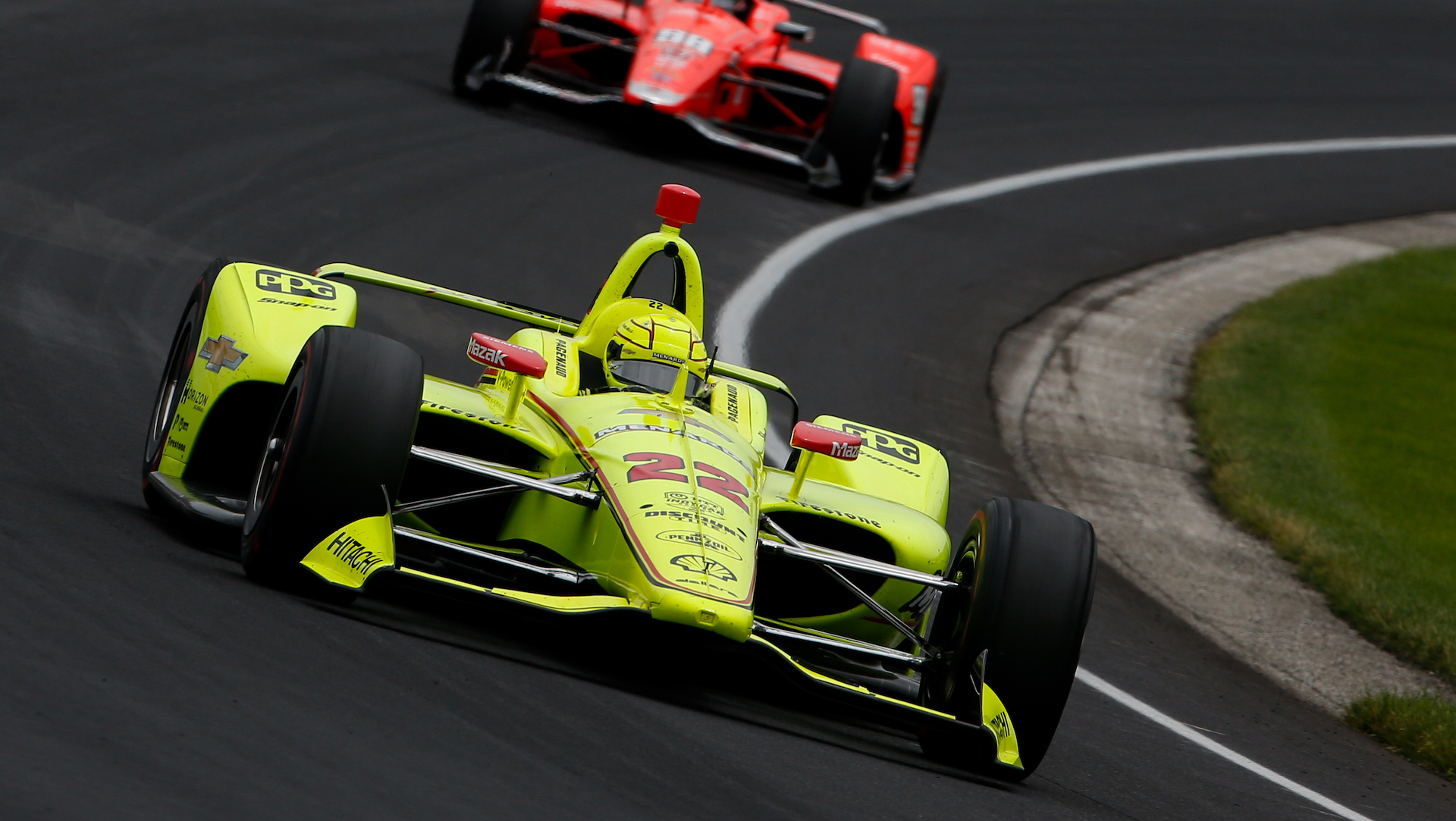

IndyCar has confirmed the introduction of hybrid engines from Honda Performance Development and Chevrolet Performance for the 2022 NTT IndyCar Series season. The series had previously announced a new engine formula for the 2021 season, but it will now be pushed back one year to introduce the new hybrid power unit along with the next-generation chassis in 2022.
According to a press release issued Thursday morning, the hybrid system will run parallel to the twin-turbocharged internal combustion engines (currently 2.2-liter V6s developed by Chevy and HPD) to produce an excess of 900 horsepower. The multi-phase motor, inverter, and electric storage unit will award next-gen Indy racers an energy recovery system similar to what’s already being used in Formula 1 and World Endurance Championship (WEC). The recovery system will be powered by the car’s brakes, and it will boost overall engine performance as well as push-to-pass horsepower.
“As we move toward the future, we will remain true to our racing roots of being fast, loud and authentic, and simultaneously have the ability to add hybrid technology that is an important element for the series and our engine manufacturers,” said IndyCar president Jay Frye.
Another benefit of the new hybrid system will be an on-demand engine ignition system that can be activated by the driver from inside the cockpit. Historically, these cars have always been started by hand-held electric starters operated by pit or safety crews. IndyCar claims that from a safety standpoint, the new ignition system will improve on-track situations by giving the driver the ability to restart the car quickly should it stall, instead of waiting for a manual restart from someone.
“Chevrolet supports delaying the implementation of the revised engine regulations until 2022 to coincide with the series’ introduction of new technologies with the chassis,” said U.S. Vice President of Chevrolet Performance and Motorsports Jim Campbell. “The partnership between Chevrolet and IndyCar remains a strong platform for showcasing relevant technologies that we incorporate in our production engines, and transfer learnings in performance, reliability and efficiency between the racetrack and the showroom.”
Honda, whose supercars like the Acura NSX already feature hybrid technology—and not to mention its race-winning efforts with hybrid powerplants in Formula 1—simply said it’s “committed to developing people and technologies relevant to the future of the sport.”
“IndyCar offers us the perfect platform to prove out both people and technologies in an environment where measurement of successes and failures is crystal clear,” said Honda Performance Development President Ted Klaus.
This new set of engine regulations will be in place from 2022 through the end of the 2027 racing season.